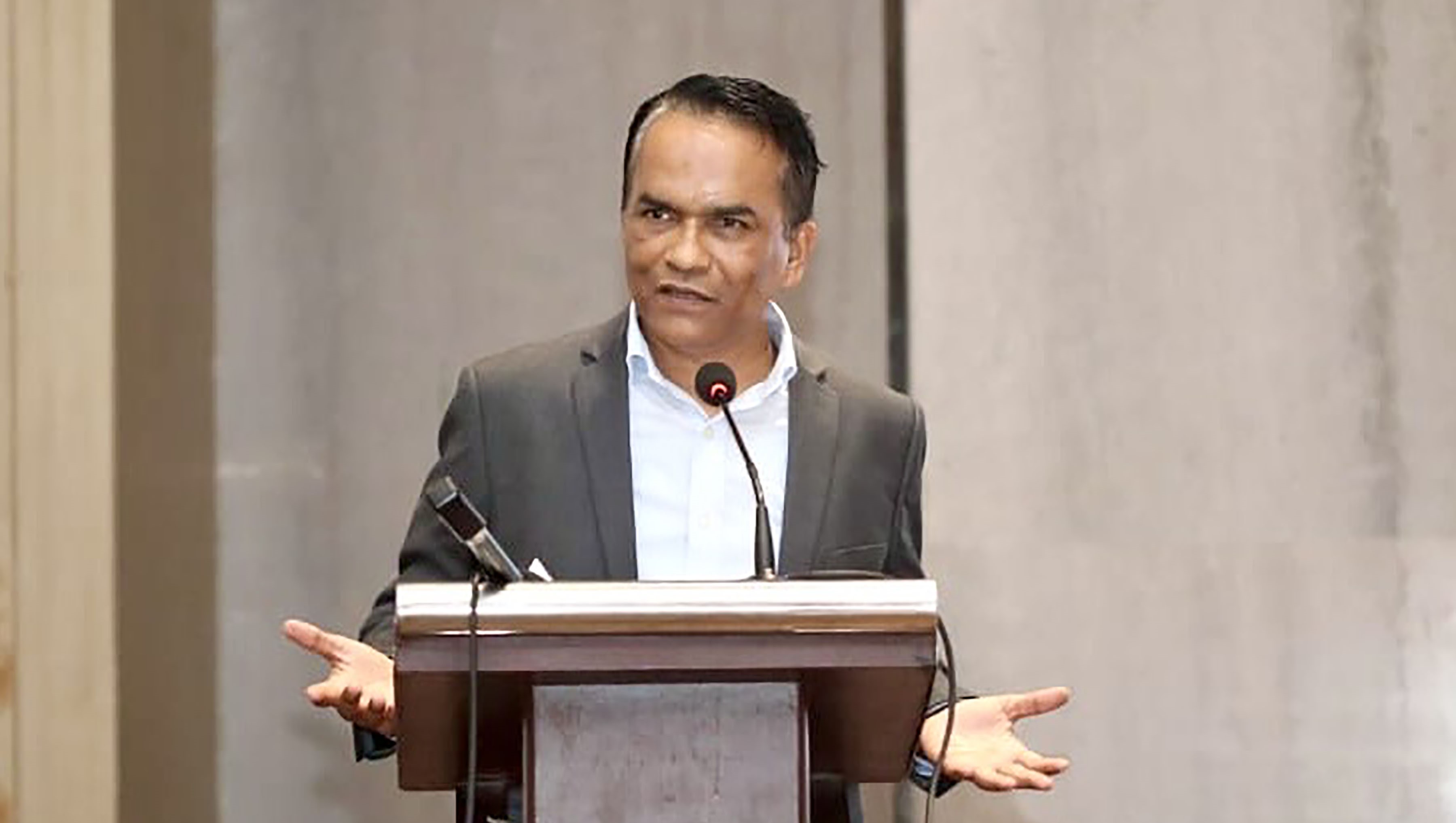- Monday, 7 July 2025
Problems in banks and financial institutions due to increasing bad loans: Governor Paudel
Kathmandu, July 6: Nepal Rastra Bank governor Dr Bishwanath Paudel has said that increasing bad loans in agriculture and small and medium enterprises have badly affected banks and financial institutions.
He noted that merely introducing a monetary policy focusing on large entrepreneurs and businesses will not resolve this issue. At a pre-monetary policy discussion programme organised by the Society of Economic Journalists (SEJON) here on Sunday, Governor Paudel mentioned that preparations are being made to introduce a monetary policy for the upcoming fiscal year 2082/83, with a focus on agriculture and small and medium enterprises.
"We desire to increase the flow of loans in agriculture and the small and medium enterprise sector, but bad loans have increased. We should be more focused on how to solve this problem," said Governor Paudel. "During times of instability, all sectors are affected; therefore, we need to uplift all as much as possible, rather than having one group of the wealthy and another group of farmers and small entrepreneurs."
Senior vice president of the Confederation of Banks and Financial Institutions (CBFIN) Nepal, Rajesh Upadhyay, stated that the main reason for the inability to increase loans despite a decrease in interest rates is the decline in disposable income. 'Our expenses have increased, but income has not been able to grow; youth migration has reduced consumption in the consumer market,' Upadhyay said. He argued that while it is necessary to have guidelines for working capital loans, they have not arrived at the right time. Upadhyay expressed the view that the increase in bad loans is not just a problem for banks but has emerged as a social issue.
Former Chief Secretary Dr Baikuntha Aryal argued that the government always claims to have brought an expansionary fiscal policy. However, the private sector is facing more problems due to the lack of policy stability. "The government claims to have introduced reforms-oriented and expansion-oriented fiscal policies, such as widening the tax base, but we do not have policy stability," Aryal said.
Similarly, the former president of the FNCCI, Shekhar Golchha, said that it is necessary to boost the morale of the private sector through the upcoming monetary policy.
President of Nepal Bankers' Association, Santosh Koirala, emphasised the need to establish an asset management company as a powerful and authorised entity. "Currently, banks are functioning as asset management companies; when banks alone cannot solve the problems, we need a powerful entity to act as an asset management company," he remarked.(RSS)



-original-thumb.jpg)









-original-thumb.jpg)

